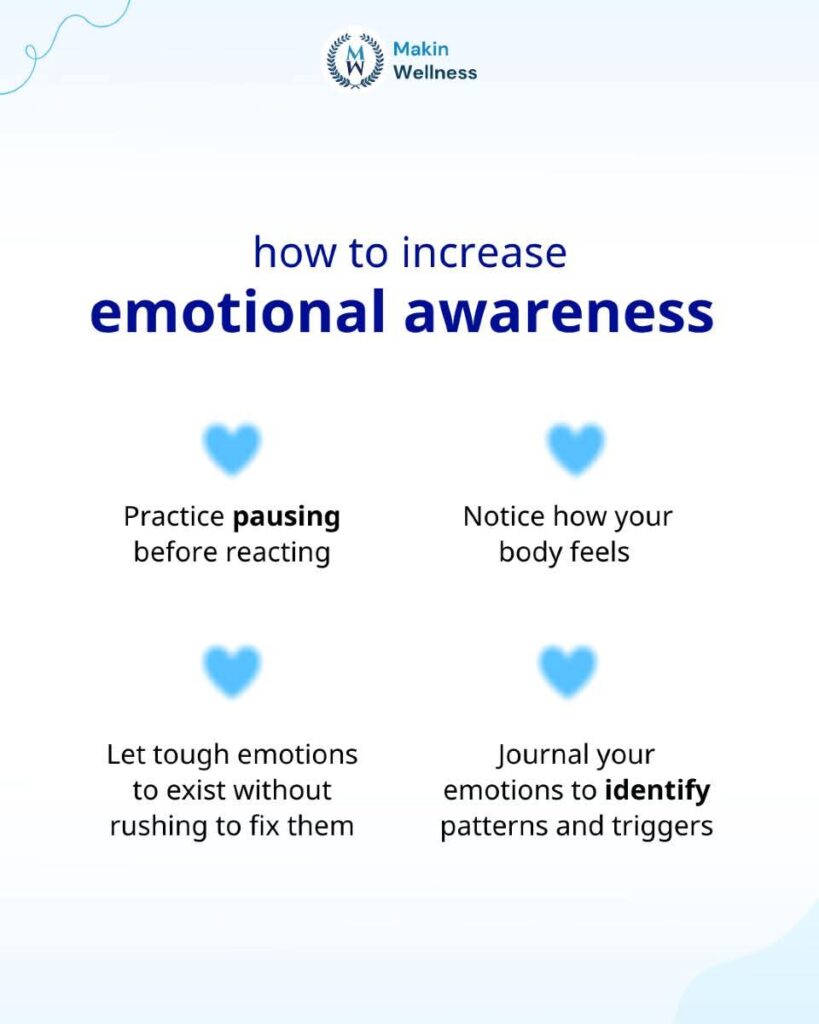Have you ever experienced a moment of emotional overload where everything suddenly boils over—and you just lose it? Whether it looks like yelling, crying uncontrollably, slamming doors, or shutting down entirely, this kind of emotional outburst has a name in everyday slang: crashing out.
The term “crash out” has gained traction online and in everyday conversation, especially among younger generations. It describes moments when stress, frustration, or emotional weight become too much to bear, and is typically accompanied by an intense, often involuntary emotional release that can leave you feeling exhausted, embarrassed, and disconnected from those around you. The term evokes the idea of something collapsing under pressure—a crash—usually without warning.
If you have experienced an emotional moment like this, know that even though it does not define you, it does deserve attention. Crashing out isn’t always a one-time thing. It can become a repeated pattern that harms your relationships, interferes with your personal growth, and keeps you from being grounded. This article will help you understand why crashing out happens, what it looks like, and how you can begin to move forward.
What Crashing Out Looks Like in Real Life
Imagine this: You’ve had a stressful day. Maybe you’re juggling multiple responsibilities, coping with conflict, or carrying emotional pain from the past. Someone makes a small comment – something seemingly harmless – and suddenly you feel your chest tighten, your voice rise, and tears start to form. Before you know it, you’re shouting, sobbing, or shutting down completely.
This is what it means to crash out.
Crashing out looks different for everyone. Still, there are some common signs:
- Yelling or screaming in frustration,
- Crying uncontrollably,
- Shutting down or walking away without warning,
- Becoming physically agitated (pacing, clenching fists), and
- Saying things you don’t mean, then regretting it.
Often, after a crash out, you may feel a deep sense of shame or confusion. You might even ask yourself, “Why did I react like that?” The truth is that crashing out isn’t about weakness—it’s a sign that something deeper may be going on inside you.

Why Emotional Outbursts Happen
Crashing out usually stems from emotional dysregulation, a term that describes difficulty managing emotional responses to triggers or stress. According to a narrative review on ‘impairing emotional outbursts’, emotional outbursts can be rooted in multiple underlying issues, including trauma, neurodevelopmental conditions, chronic stress, and emotional neglect.
Here is an expanded list of causes we have noticed in our years of serving people through online therapy:
1. Unresolved Trauma
When painful experiences from your past go unprocessed, they can influence how you react to present-day stress. Even if current events bear only a passing resemblance to traumatic memories, your brain and sympathetic nervous system may not be able to tell the difference. Something minor can trigger a deeper emotional wound, causing you to crash out.
2. Chronic Stress
Constant pressure from work, relationships, or personal expectations can wear down your ability to regulate emotions. Over time, this can make even small problems feel overwhelming, pushing you over the edge.
3. ADHD and Emotional Sensitivity
If you have ADHD, you are more likely to experience heightened emotional reactivity and struggle with impulse control, making you more vulnerable to unexpected emotional outbursts.
4. Insecure Attachment and Childhood Patterns
If you didn’t grow up in an environment that modeled healthy emotional regulation and secure attachment, you may not have developed the tools you need to manage your feelings as an adult. Consequently, when you experience something today that echoes uncomfortable parts of your childhood experience, you can find yourself unknowingly crashing out.
5. Mental Health Disorders
Living with conditions like Borderline Personality Disorder (BPD), PTSD, or anxiety disorders can also contribute to your emotional volatility. In this context, crashing out could be one of many underlying symptoms that form a comprehensive diagnosis by a qualified mental health professional.
6. Lack of Emotional Vocabulary
When you haven’t been taught how to name or identify your emotions, it becomes harder to process them. This emotional bottleneck can lead to frustration and explosive releases. If this is something you struggle with, developing an emotional vocabulary through online therapy could be helpful for you.
7. Burnout and Fatigue
Overextending yourself emotionally, mentally, or physically can wear down your ability to cope with everyday stressors. Burnout leaves little room for emotional flexibility, making crash outs more likely – a clear sign that you need time to rest and recover.

The Residual Effects of Crashing Out
It’s natural to want to release your emotions, and expressing your feelings is a healthy part of being human. The thing is, crashing out often causes more harm than good.
When you crash out:
- Your communication with others breaks down;
- Your loved ones may feel attacked or confused by your behavior;
- Trust in your relationships can erode, maybe even irreparably;;
- Your root issues often remain unaddressed; and
- You may lose self-respect or confidence.
Over time, these patterns can create cycles of guilt, disconnection, and even isolation. You may find yourself apologizing again and again, wondering why things don’t change. People around you may even begin to withdraw or tiptoe around your emotions, which can be painful and isolating.
Crashing out also tends to damage your self-image. You may start believing you’re “too much,” “too emotional,” or that you’re incapable of managing your feelings. These beliefs can deepen emotional wounds and prevent growth.
Here’s the truth: Letting your emotions out is healthy. Crashing out is not. There’s a difference between expressing your emotions and being repeatedly overtaken by them.
Fortunately, that difference can be addressed with intentional practice and the right kind of support – in particular, online therapy and healthy community.
Next Steps To Address Crashing Out and Start Moving Forward:
Even if crashing out feels like it’s just “who you are,” it doesn’t have to be that way for you forever. Emotional regulation is a skill—and like any skill, it can be learned, practiced, and strengthened over time, especially through online therapy
By working with your online therapist to understand your emotional patterns, build self-awareness, and develop a plan for what to do when you feel a crash out coming on, you can prevent emotional outbursts and keep your relationships with others clean – even in the heat of the moment.
This kind of personal development doesn’t mean you’ll never feel angry or upset. It simply means you’ll have the tools to respond rather than react – to act in alignment with your values, not your overwhelm.
Taking time to work through your issues in online therapy can also invite deeper connection with yourself and others. As you grow in emotional awareness, your relationships can benefit too. You begin to create safer, more secure interactions with the people who matter most in your life.
Perhaps even more importantly, you can start to experience yourself differently. Instead of feeling hijacked by your emotions, you can feel empowered by your ability to understand and navigate them.

6 Steps to Address ‘Crash Outs’ and Make Progress in Your Mental Health
At Makin Wellness, we believe that the journey to better mental health starts with self-compassion and a willingness to grow. The following steps can help you better understand your triggers and develop healthier ways to respond:
- Identify Your Triggers
Start paying attention to the moments just before you crash out. What are you feeling? What’s being said or done? Keeping a journal can help you track your emotional, verbal and situational patterns. - Learn to Pause Before Reacting
When you feel the emotional wave rising, practice taking a breath or stepping away. There is no shame in needing to step away from the situation that is causing you stress! - Use Grounding Techniques
Some examples include:- Breathing Techniques like the 4-7-8 method;
- Naming five things you can see in your immediate environment; and
- Touching a nearby textured object or comfort item to bring more awareness to your senses and sense of place.
Learn more about how to cope with anxiety here.
- Communicate Your Needs Clearly
Once you are grounded and begin to understand what you are feeling, you are more empowered to recognize what your primary needs are. Try to name those needs so the people around you can support you and not get caught in the crossfire of an outburst. For example: “I feel overwhelmed and need some space for 10 to 15 minutes.” - Seek Out Online Therapy or Online Counseling An online therapist can help you explore the root causes of your emotional outbursts and teach you effective tools for regulation. Therapies like Narrative Exposure Therapy or DBT can be particularly helpful for this.
- Forgive Yourself and Practice Patience
The journey to improving mental health doesn’t happen overnight. Along the way, you’ll have both good days and setbacks. It’s important to treat yourself with kindness through the process.
These six steps are not about suppressing emotion—they’re about honoring your feelings while learning to express them in ways that support your personal growth and relationships.
Learn How to Confront Crash Outs with Online Therapy
Even if the crash out meaning has its origins in popular culture, what it represents is very real: an inner emotional storm that’s waiting to be understood and addressed. With the right help through online therapy, crashing out can become something you leave in the past, rather than letting it take over your life.
You deserve to feel heard, safe, and empowered in your everyday life, not just after an outburst. Moving forward is possible, and you don’t have to go through it alone. Contact us at (833)-274-heal or start here to get connected with a Makin Wellness online therapist who understands your struggles, and will support your journey toward emotional clarity and health. If you’re ready to move beyond crash outs and into calm, intentional living, don’t wait to reach out.







